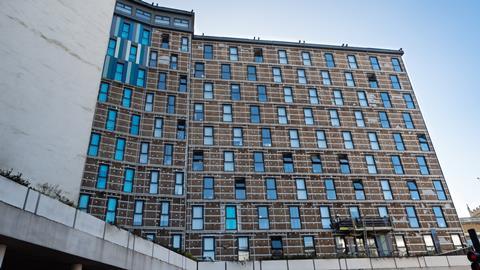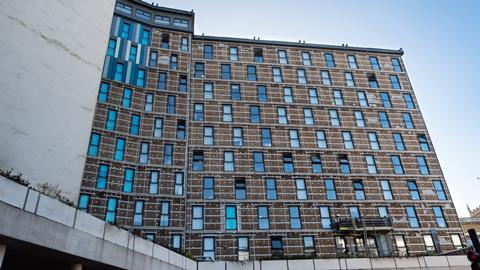The government has finally published the data behind its claim that fire safety repairs to mid-rise housing blocks will cost around £4bn after being forced to by a committee of MPs.

The analysis shows that the £4bn claim – repeated numerous times by housing secretary Michael Gove, but disputed by the housebuilding industry – comes from a desk-based survey of just 2,856 buildings.
The analysis states that the estimated cost of repairs to the buildings is between £3.1bn and £5.3bn.
The figures are significant because they have been used by ministers to justify a series of revenue-raising exercises from the housebuilding and construction industry, including getting developers to sign the cladding pledge to repair their own properties going back 30 years, at a cost of at least £2bn, and the creation of a new £3bn building safety levy.
The analysis says that there are between 74,000 and 82,000 residential buildings of between 11 and 18 metres in height in England, of which between 6,220 and 8,890 – based on the survey findings – are likely to need remediation. The majority of these, the research says, will require full remediation, which it says costs an average of £640,000 to £790,000 per building.
>> See also: The government’s regulation and rhetoric threatens the viability of sites
>> See also: The Building Safety Bill becomes law – here is what you need to know
The figures come after both MPs and the Home Builders Federation (HBF) have been pressing the government to explain how it came to the £4bn figure. The HBF claims that its housebuilder members built just 10-20% of the number of blocks the department claims are likely to require repair.

In April the HBF’s executive chair Stewart Baseley wrote to Gove stating that “for government to still be basing estimates of 11-18m buildings with safety issues on a theoretical exercise some five years after the Grenfell Tower fire is unsatisfactory”.
He said that the HBF believed that a “very large proportion” of the buildings in need of remediation were actually buildings much older than 30 years old, which had been turned into fire risks due to a refurbishment – many of which would be in the social housing sector. However, he said that it was impossible to tell without further “transparency”.
The data published today states that as much as £1.2bn of the estimated remediation costs will be to repair homes in the social housing sector
The department published the analysis today shortly after printing its response late yesterday to the levelling Up, housing and communities select committee’s report on building safety remediation and funding, which had demanded the department show its evidence for the figure.
In response to the demand, the government pointed to its publication of the data, and pledged that: “Further analysis and data related to the building safety fund, external wall systems on high-rise residential buildings data collection will be published in due course.”
In response to the publication of the analysis, a spokesperson for the HBF said the organisation had seen “everything they put out this morning before”, and that the data still includes “massive assumptions which was what they were criticised for by the select committee.” The spokesperson added: “We still await the detailed work they say they have done to get to the assumptions regarding the number of buildings, the number that need remediation, and the costs.”



